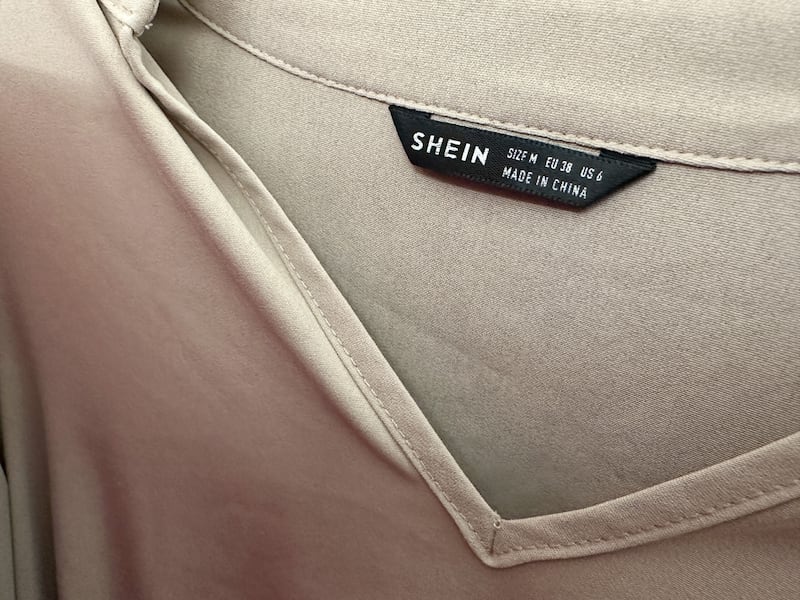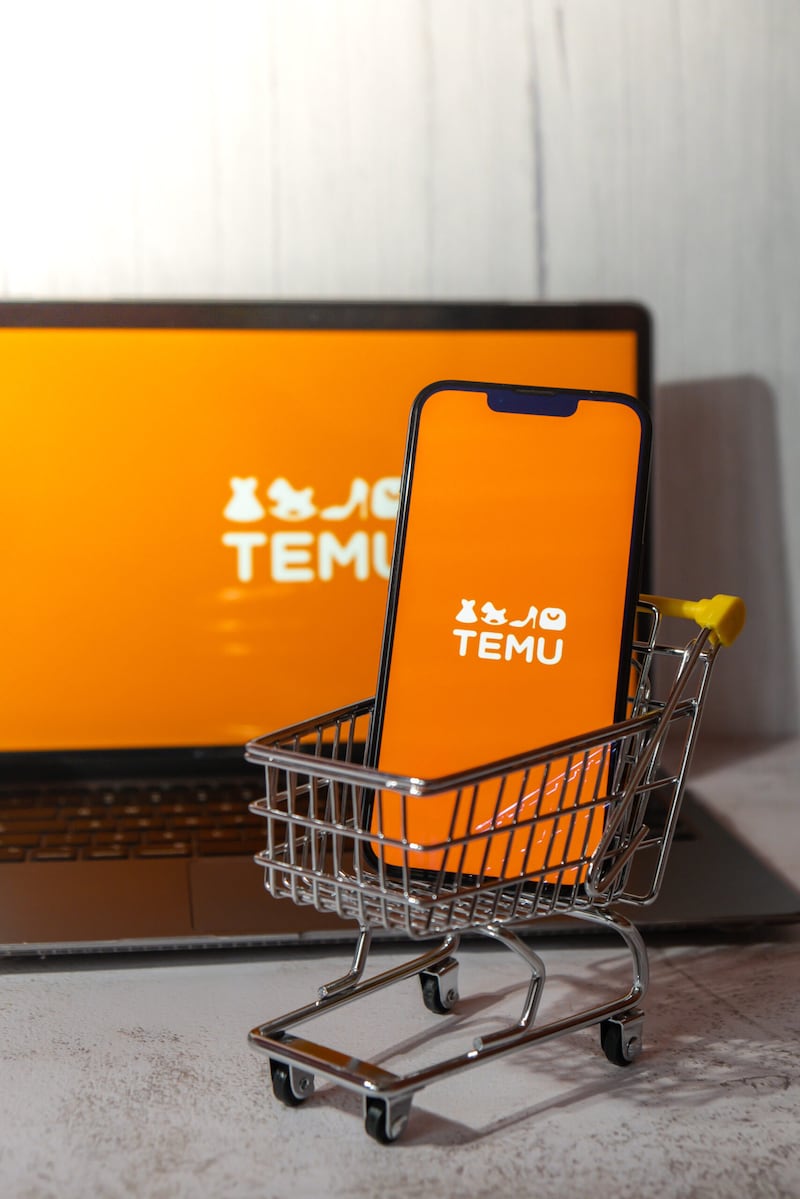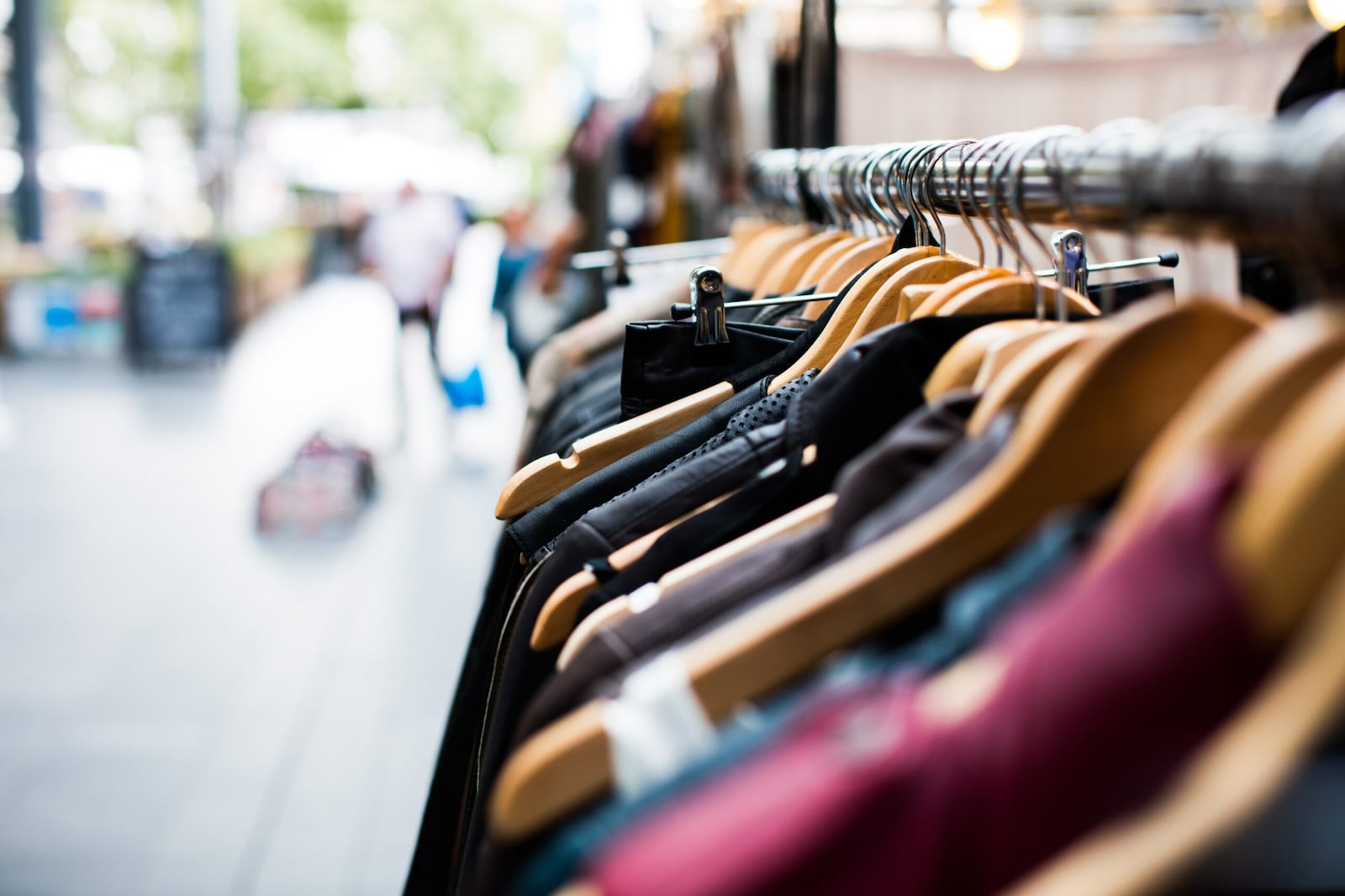have been viewed over 13 billion times. Simply put, a “Shein haul” involves dumping out a box full of newly arrived clothing items purchased on the powerhouse fast-fashion website and trying them on one by one, pointing out how surprisingly inexpensive the item is as well as the ways it arrived neither looking nor fitting exactly as advertised.
With a uniquely Utah twist, the “missionary Shein haul” features women showing off clothes befitting the standards of The Church of Jesus Christ of Latter-day Saints purchased on Shein that they will wear during their missionary service, often commenting on how perfectly these items match the well-established sister missionary dress code and style.
There’s a good reason clothing designers in far-off China know their modesty-prizing Utah market so well. Very often, these clothes are blatant copies of products made by Utah-based boutiques.
“Sites like Shein and Temu have very efficient Chinese-based manufacturing in place. They scrape the websites of United States retailers like Amazon and Walmart to see what products are trending,” says internet retail executive and investor Joana McKenna. “Within 24 to 48 hours, they can have the identical item designed, produced and up for sale at significantly lower prices, cannibalizing margins, and the consumer may not know the difference. There are a lot of great boutique fashion brands born here in Utah, and many are being undercut and losing customers because these big Chinese conglomerates have billions of dollars to spend on marketing to capture consumers, selling them knockoff products.”
The Google shopping game
Determining bestselling products on sites like Amazon and Walmart is simple since Amazon prominently features an item’s sales ranking, and Walmart allows for searches sorted by bestsellers. Smaller brands that are heavily targeted—including Utah-based böhme—don’t tend to highlight their bestsellers. Co-Founder and Head Designer Fernanda Böhme has a theory of how counterfeiters identify the demand.
“We began seeing it around 2019, right as we started doing a lot of online advertising,” Böhme says. “We were focusing on Google ads and noticed that the more we advertised, the more and faster [counterfeiters] copied [the promoted items], even using the exact photos from the ads.”
While sites like Shein and Temu commit intellectual property violations when they make exact copies of clothing and use original photos of them, they are very careful not to use the original brand or product names. For example, searching Google for “böhme dresses” will yield top paid search results of Temu ads highlighting “bohemian dresses,” including several copies of böhme products.
Other Asia-based sites do cross the line, however. Böhme says exact copies of her company’s website regularly pop up with domains as blatantly infringing as bohme.cn—“cn” being the country code top-level domain assigned to and managed by China. “The hard thing is that these fake sites are in Asian countries, so it’s hard to find the people behind them to shut them down,” Böhme says. “If we did hire a law firm to go after them all, the cost is so high it doesn’t make sense. And another would just pop-up to replace it.”

Böhme is describing what Maschoff Brennan Gilmore & Israelsen Attorney Rick Gilmore refers to as the “Whac-A-Mole problem.” He’s somewhat optimistic about the enforceability of U.S. intellectual property (IP) law in China, even if it’s not uniform.
“China’s approach toward IP has been changing as they’ve matured from being copiers to innovators,” Gilmore says. “It’s forced them to embrace the value of a strong IP system. How much that attitude has evolved depends on the sector and location. Where there’s innovation going on, you have specialized IP courts that look at it differently than areas where mostly copying is going on.” Because China is not known for its fashion innovations, this does not apply as much to that industry, he adds.
Nicole Bruderer, founder of the Utah-based modest swimwear brand Lime Ricki, first noticed her products being knocked off in 2018. It began on Shein—which had entered the U.S. market a few months earlier—and then moved to other sites where the infringement was more overt.
“There are a bunch of China-based sites that all sell the same things and are really just duplicates of each other using different names and URLs,” Bruderer says.
Google gives advertisers the ability to run reports identifying the bestselling products in various categories updated in near real-time, based on each Google Shopping ad’s performance and conversion. Shein and Temu advertise heavily on Google Shopping, and it’s not unreasonable to conclude that Böhme’s intuition is correct: Shein and Temu’s production decisions are influenced by the popularity insights of other brands, which Google freely provides.
Logan-based boutique Downeast Basics sees very few of their products on knock-off sites, and that may be the exception that proves the rule. Senior Director of Marketing Greg Taylor reports that only a tiny portion of his advertising budget goes to Google, as he prefers more visual social media marketing channels.
It’s the hard knock(off) life
While Shein and Temu’s copying of designs is indisputable, the claim that they are guilty of IP theft can be argued both ways, as evidenced by yet another TikTok hashtag: #SheinStoleMyDesign. These videos document design theft stories supported by screenshot evidence. Comments left by skeptics claim the “stolen” designs are also derivative of others that came before.
Indeed, brands like Forever 21, H&M and Zara spent the early 2000s perfecting the fast-fashion business model, where variations on trends gaining traction among 20-somethings were churned out to meet demand in (what used to feel like) the breakneck pace of two to three months.
“All new fashion is influenced by other fashion. We’re all ‘fast follow,’” McKenna says. “I think the difference is that U.S. companies are very sensitive to trademark and copyright infringements, so they make sure that their designs are different enough to not be mistaken for a knockoff or to be infringing on a brand’s protected rights. There’s recourse for brands. While they may make products that are similar in design or aesthetic, I think the difference with these big Chinese companies is that they are copying these products exactly.”
Böhme confidently estimates that knockoffs have cost her company at least 200,000 sales. Given böhme’s average price point of $75, that equates to around $15 million in lost revenue.
“The problem with sites like Shein is it bypasses the retailer, and the retailer contributes a lot,” Böhme says. “We pay taxes on sales and payroll, and that’s a huge contribution to local economies. We employ around 300 people and provide them health benefits. Our stores pay rent in 17 malls. These are real contributions. When shoppers cut us out while still buying our stolen designs, they also cut out all those benefits that would come from our hiring more people and paying rent on a bigger building.”
At the same time, Böhme gets philosophical when quantifying the problem. She concedes that when it comes to China, it’s complicated.
“China is doing its thing, which is exporting manufacturing, and people here are happy to get a good price. We don’t survive without them, and they don’t survive without us,” she explains. “We need China to make the goods because America lacks the expertise, specialized machinery and fabrics they have in abundance in China. We put up with it because we need them. And as long as we want American kids to grow up to be tech whizzes and not textile workers, it’s not going to change,” Böhme says.

Intellectual property and combating copycat sites
Though Bruderer is unsure how many orders Lime Ricki has missed out on thanks to counterfeiters, it’s enough to justify hiring DMCA, a service dedicated to monitoring and removing infringing content.
“We try not to spend too much money anymore. At first, we were spending a lot on legal fees. Now, we just have DMCA do it for us,” she says. “We send them the URL, and then they try to get it taken down.”
Böhme has also quit paying attorneys to get infringing content taken down, opting instead to follow a method that appears to eventually produce results.
“We send them a cease and desist letter by email and hope it actually gets opened, read, and is intimidating enough to get them to take it down,” Böhme says. “Most of the time, they ignore us, but we keep at it. Eventually, it disappears.”
The copycat site disappearing may be a consequence of legal threats—but in Downeast Basics’ most recent experience, a limited lifespan may actually be the scammers’ modus operandi.
“By the time we were ready to move forward with legal action, the site disappeared,” Taylor says. “We don’t know if it was just a short-term scam, and they go into it knowing it will just be temporary, but it was gone before we managed to get through our full process.”
Those who do choose to follow the legal route should be both persistent and patient in their approach, Gilmore says.
“The first step is to notify them that you know that they’re infringing. If nothing happens, you need to look at what intellectual property rights you can enforce against them in the Chinese system,” he explains. “That means identifying any design patents, trademarks or copyright protections you have. Then, you ask Chinese customs to enforce those. What still has not been solved is that Whac-A-Mole problem where a takedown notice is enforced, and then two days later, they’re back at it but under a different name.”
A moral dilemma
The bottom line: Shein and Temu’s meteoric growth in the U.S. is driven by Gen Z. Pollster CivicScience found that Generation Z women aged 18 to 24 are “fueling the fast fashion fire,” with 42 percent of that group shopping fast-fashion sites weekly or monthly. Ironically, this cohort also claims to define itself, in part, by a dedication to supporting brands with a social conscience.
As discordant as it may seem, cultural and economic factors have influenced many 18- to 24-year-olds to place a higher value on price than principle. On the economic side—with a median annual income averaging less than $40,000 as calculated by GOBankingRates—the majority of Gen Zers are living paycheck to paycheck, as confirmed in a recent report by Deloitte. Meanwhile, Bank of America found that 40 percent of Gen Z are dealing with inflation by spending less on clothes—which is not the same as buying fewer clothes.
On the cultural side, Gen Z has a famously strong affinity for social media influencers and the microtrends they champion, with one survey finding that the brands influencers wear are twice as attractive to Gen Z as brands worn by their friends. Put it all together, and Gen Z’s fondness for ultrafast-fashion sites, baggage and all, appears inevitable.
The boomers and Gen Xers dominating Congress recently joined the conversation and issued a report in June that found Temu makes no effort to comply with U.S. laws barring the importation of items sourced from regions in China known to use forced labor.
Lawmakers and domestic brands impacted by Chinese knockoffs face an uphill battle in helping young consumers see that the thrill of a “Shein haul” is, ultimately, not worth the cost.

